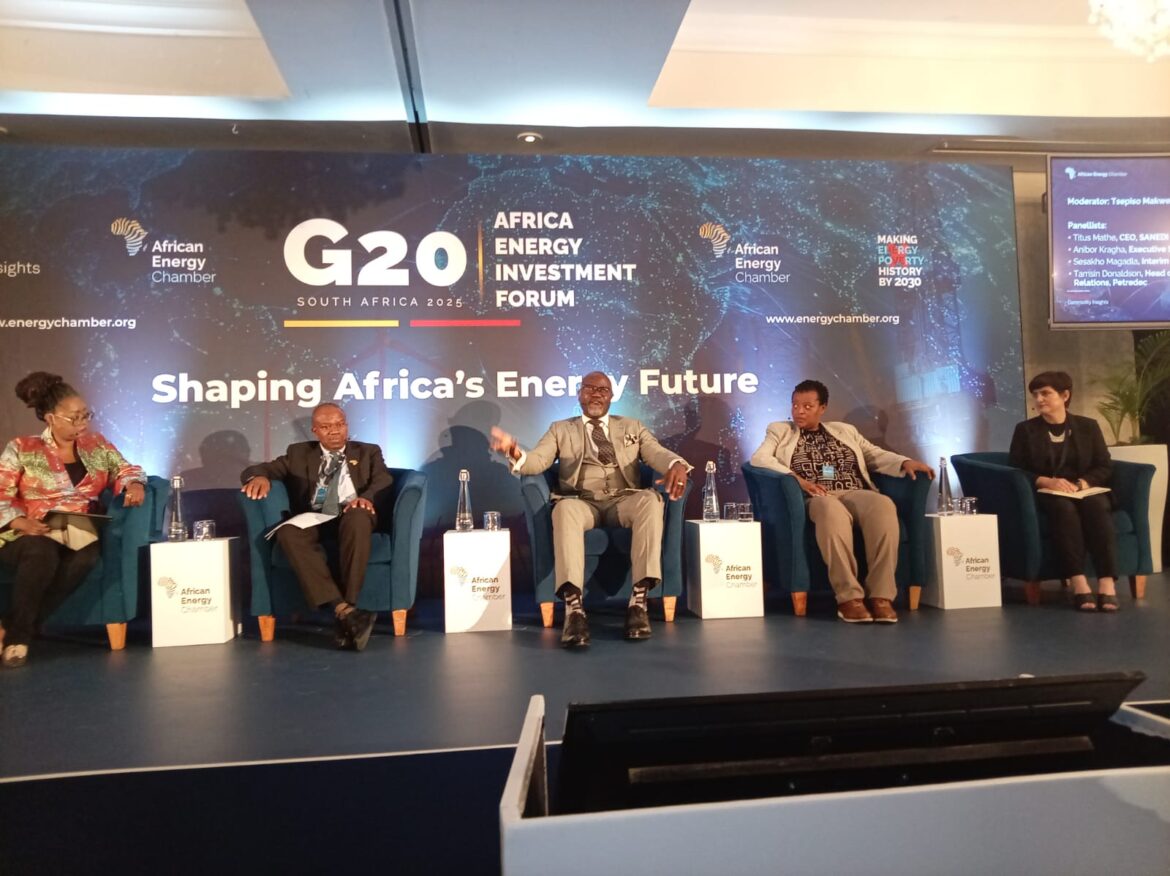Africa’s long-delayed transition to clean cooking will fail without a serious overhaul of how the continent finances, transports and regulates LPG, senior executives said during a high-level panel on clean cooking and LPG at the G20 Africa Energy Investment Forum in Johannesburg on Friday.
Speakers pointed to a rare alignment of political support – following G20 endorsement of clean cooking as a priority area – but warned that critical infrastructure gaps and a broken financing ecosystem are slowing progress.
South Africa’s LPG demand sits “just below 500,000 metric tons,” yet supply remains constrained due to offline refineries and a fragmented transport network, said Sesakho Magadla, Acting CEO of PetroSA. Getting refineries operational again – including PetroSA’s Gas-to-Liquids refinery in Mossel Bay – is “a priority,” she noted, adding that the company aims to mobilize by 2026 to relieve pressure on the domestic market.
But infrastructure extends beyond production. PetroSA is now examining rail improvements – particularly linking Saldanha Bay to Mozambique – to ease congestion and move LPG at scale. It requires “collaboration beyond the energy sector,” Magadla noted, “so that when the rail is operational, you can connect the existing fragmented transportation network and move the product.”
Private-sector operators echoed the call for major transport reform. Tamsin Rankin Donaldson, Head of Marketing and Communications at Petredec, said poor logistics and limited terminal capacity add “a 10–20% premium” to LPG costs because companies are forced to “bring smaller parcels through smaller terminals.” Africa urgently needs “infrastructure that allows us to bring in higher volumes,” including terminals capable of receiving Very Large Gas Carriers (VLGCs), she said.
Petredec is currently constructing the Tanga LPG terminal in Tanzania and exploring a rail link from Richards Bay to inland markets in South Africa. Her biggest policy request was clear: governments must prioritize “streamlining permitting processes” to accelerate project timelines.
While infrastructure determines affordability, financing determines whether projects move from concept to construction. “The green finance mechanism is underused,” said Titus Mathe, CEO of the South African National Energy Development Institute, who said that investors lack the data they need to quantify emissions reductions and energy savings from clean-cooking interventions. “When you think of clean cooking and LPG, the biggest challenge is data.”
He called for a unified Africa-wide clean-cooking data platform and proposed creating an LPG clean-cooking financing facility backed by the AU, G20 and global institutions “so that LPG projects across Africa can be accelerated to reach last-mile users.”
The lack of emissions-credit pathways also dominated the discussion. According to the International Energy Agency, Africa requires $37 billion to achieve universal clean-cooking access by 2030, yet the current carbon-credit framework offers little support for LPG-based solutions.
“We have to put carbon credits as part of the LPG discussion,” said Anibor Kragha, Executive Secretary of the African Refiners & Distributors Association. Clean cookstoves qualify for credits, but LPG does not – disadvantaging the very solution most capable of rapid scale-up.
“The parts of Africa like Kenya that have accelerated LPG uptake have used subsidies, but that is not sustainable,” Kragha said. Unlocking climate finance for LPG could help replace subsidies with market-driven growth.
For financiers, regulatory clarity is paramount. “If I’m a financier, I want to see clarity of regulation and project preparation,” Kragha said, adding that Africa must also attract a competitive workforce to implement projects at the necessary pace.
Rankin Donaldson underscored the scale of the challenge: achieving universal clean-cooking access by 2040 requires 80 million new connections every year – “seven times the pace we’re currently doing.”
Without rapid investment in transport networks, permitting reform and a carbon-credit framework that recognizes LPG’s climate benefits, speakers warned that Africa risks missing a once-in-a-generation window to deliver clean, affordable cooking energy.


Dining and Cooking